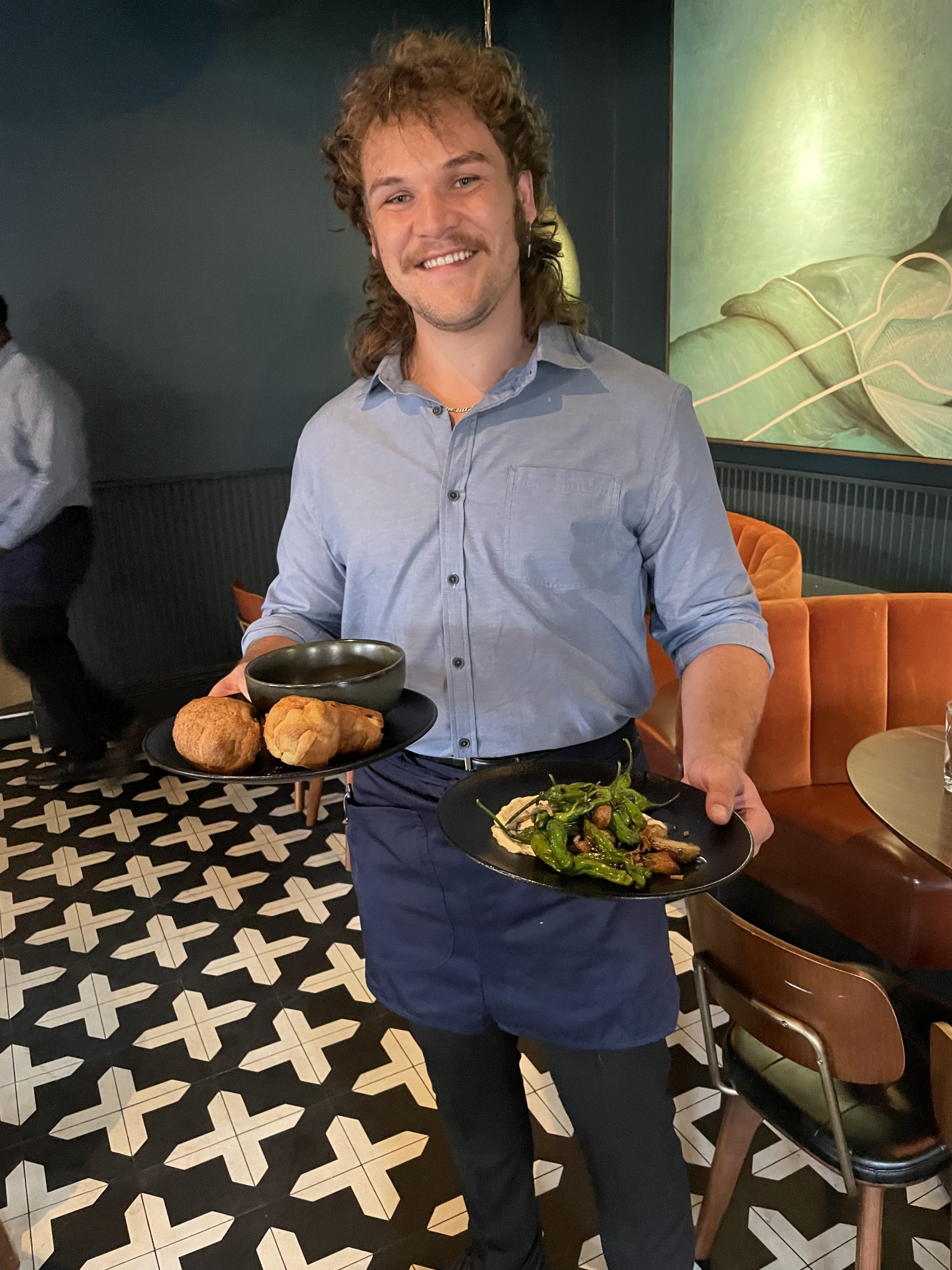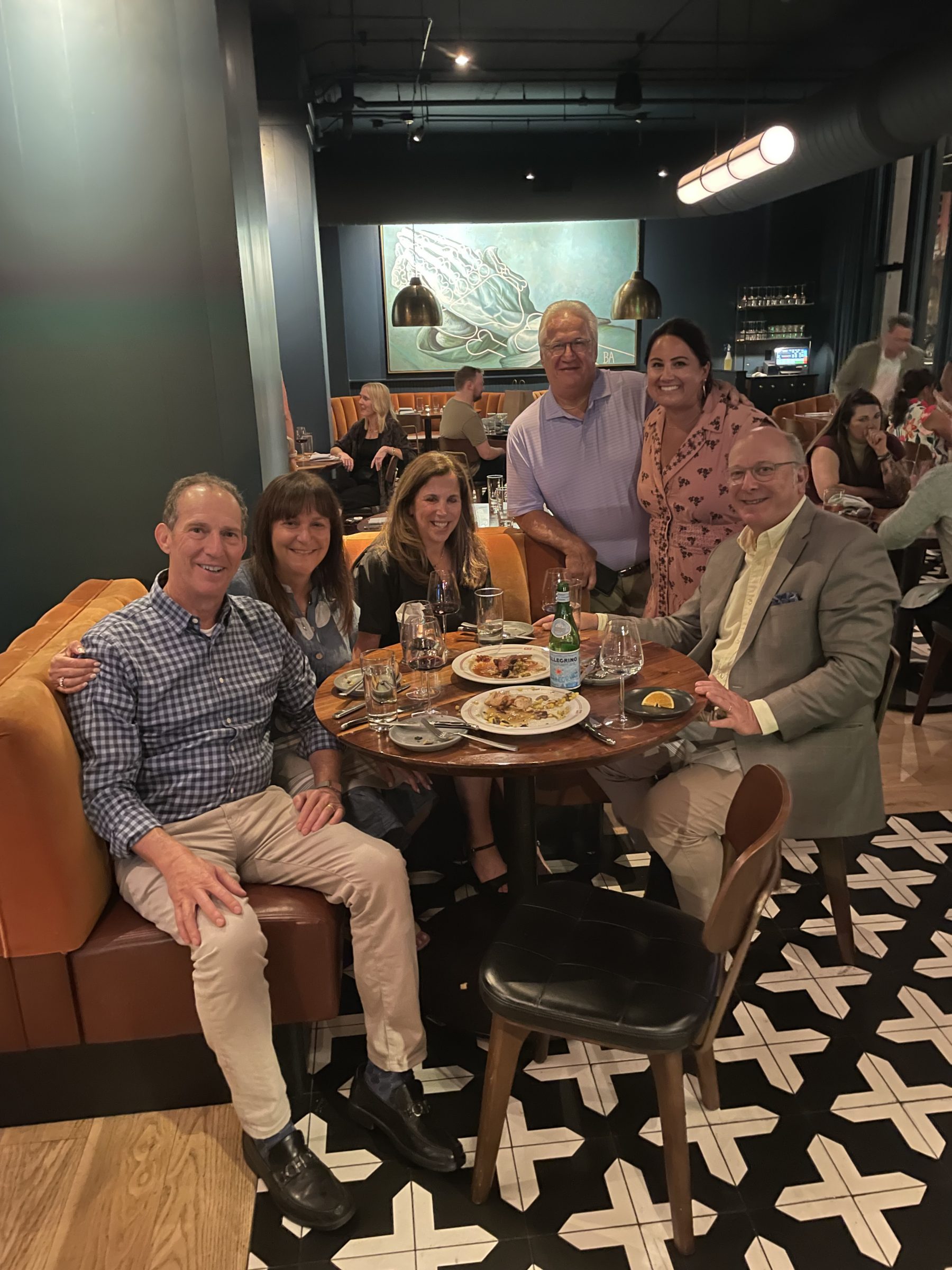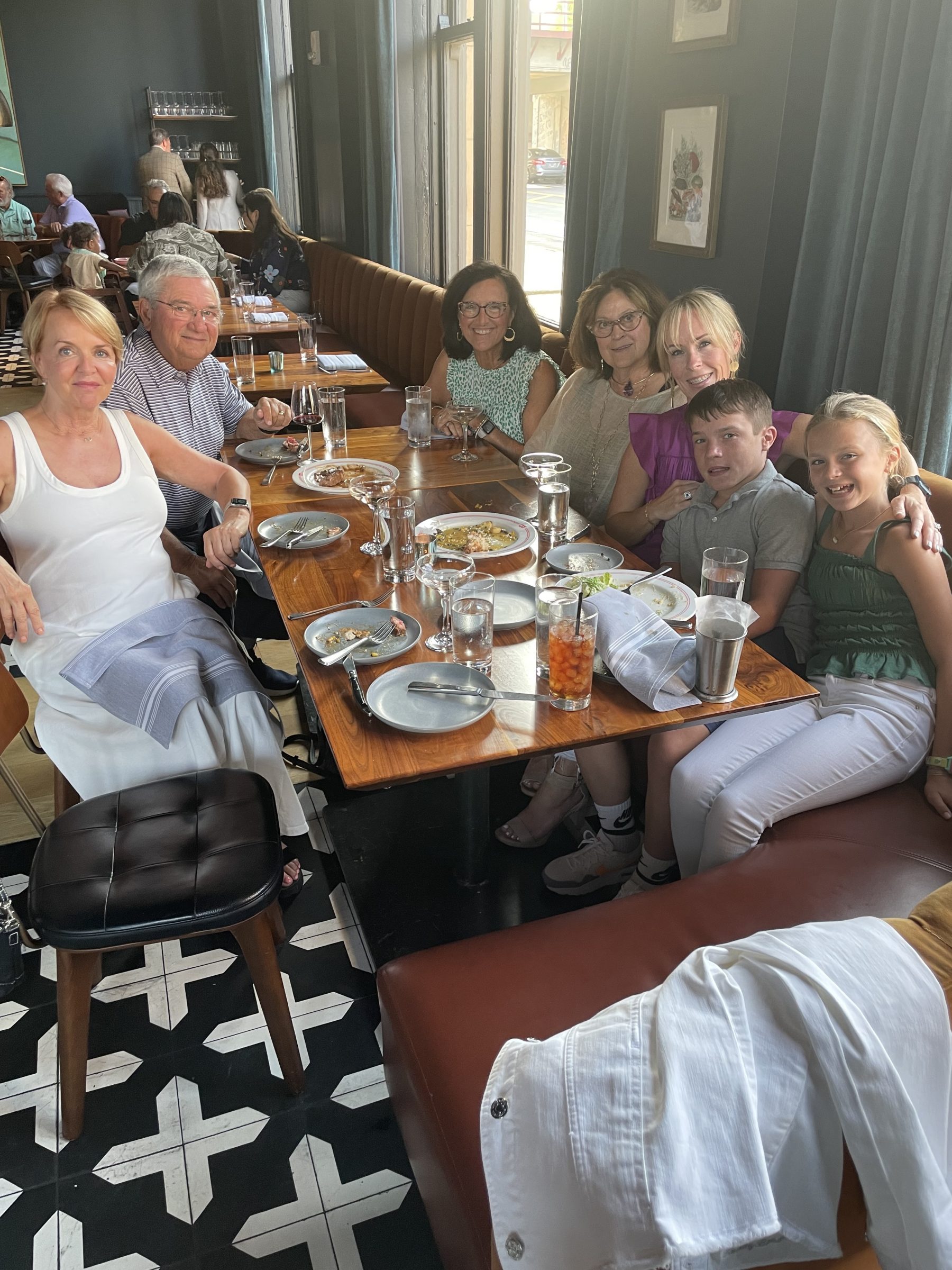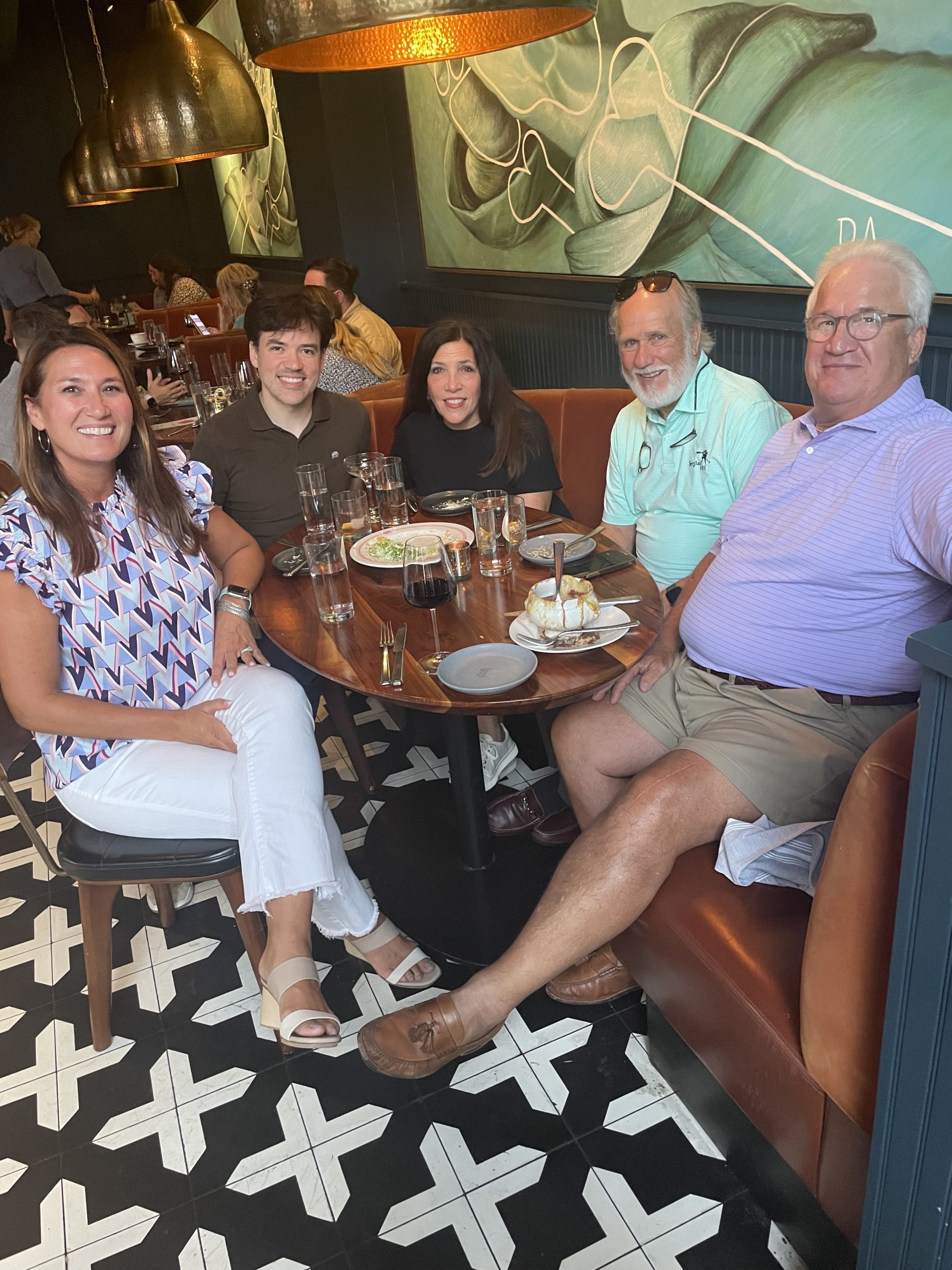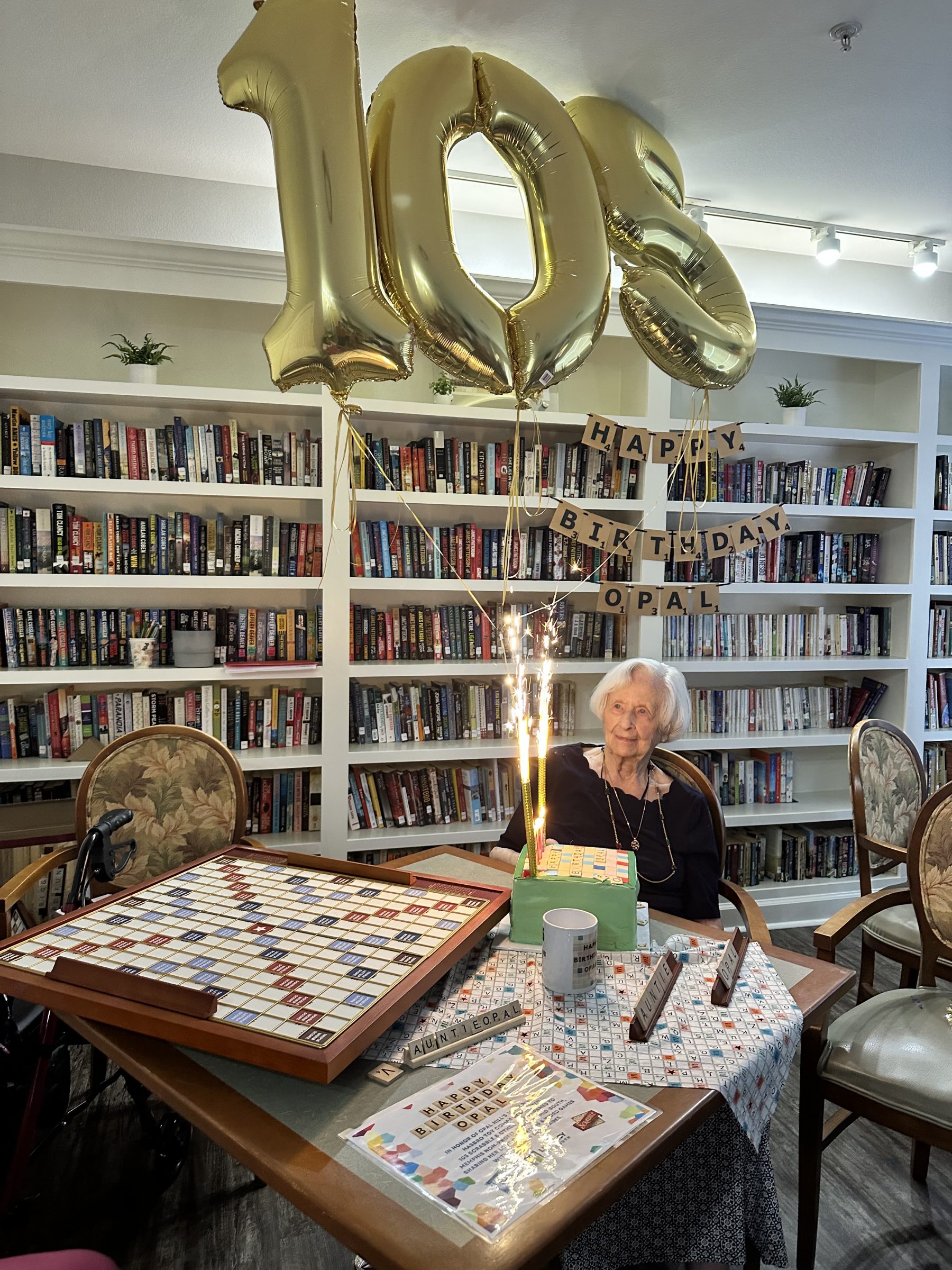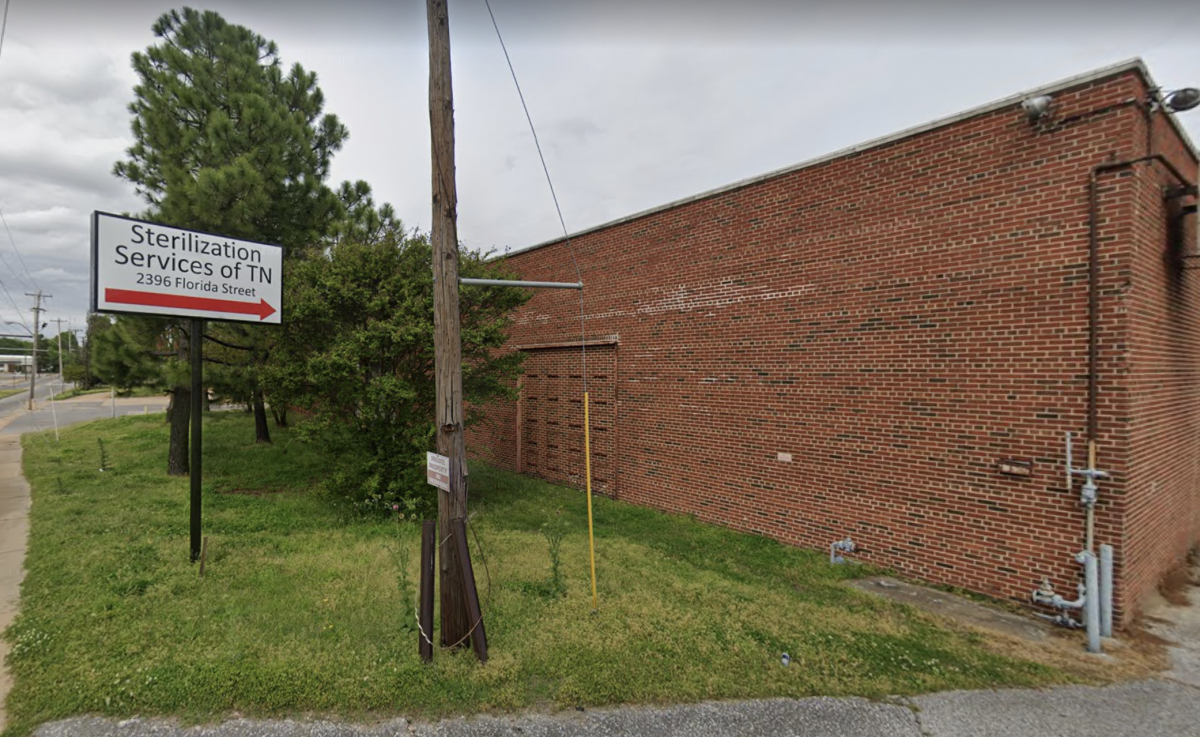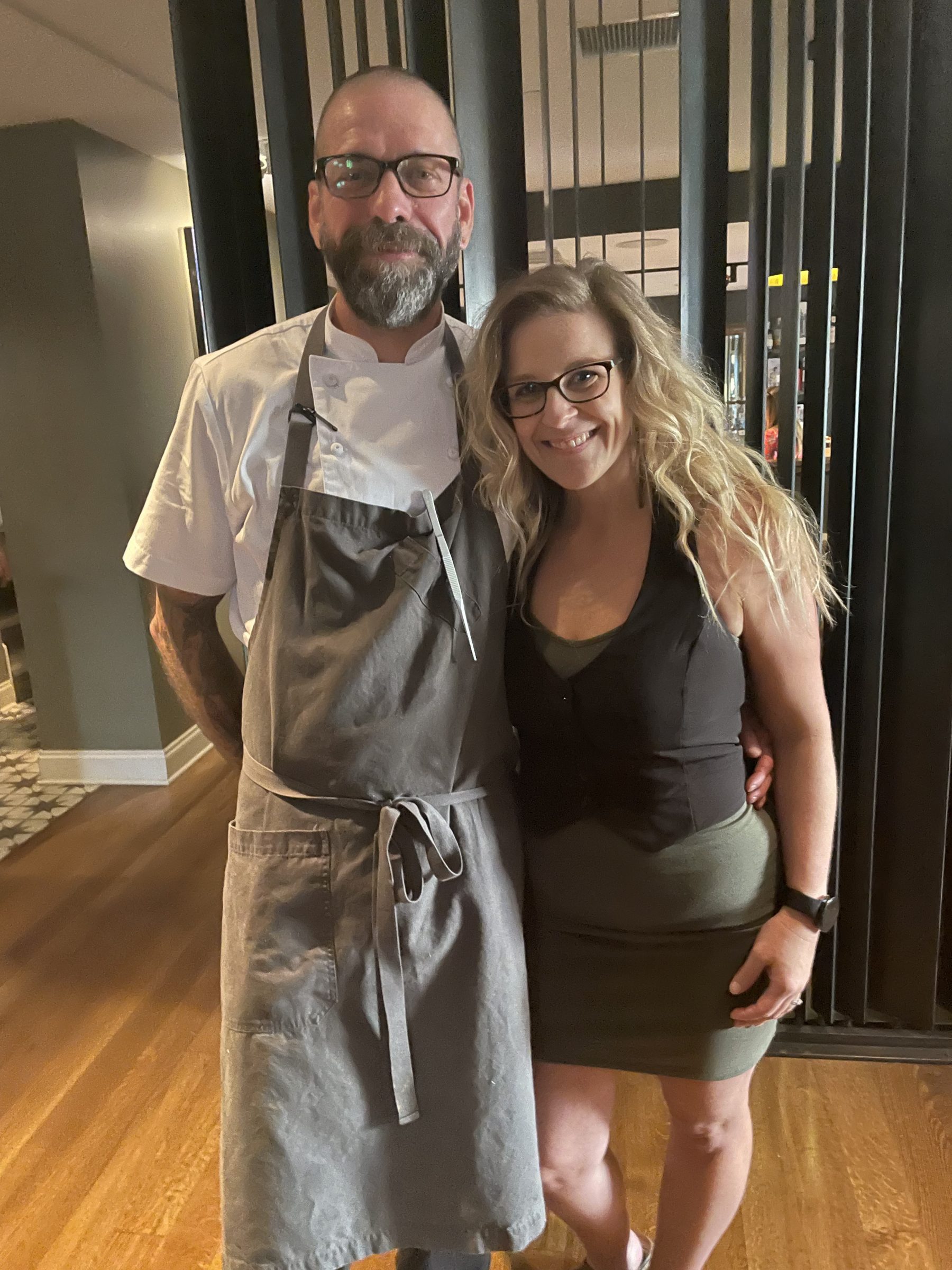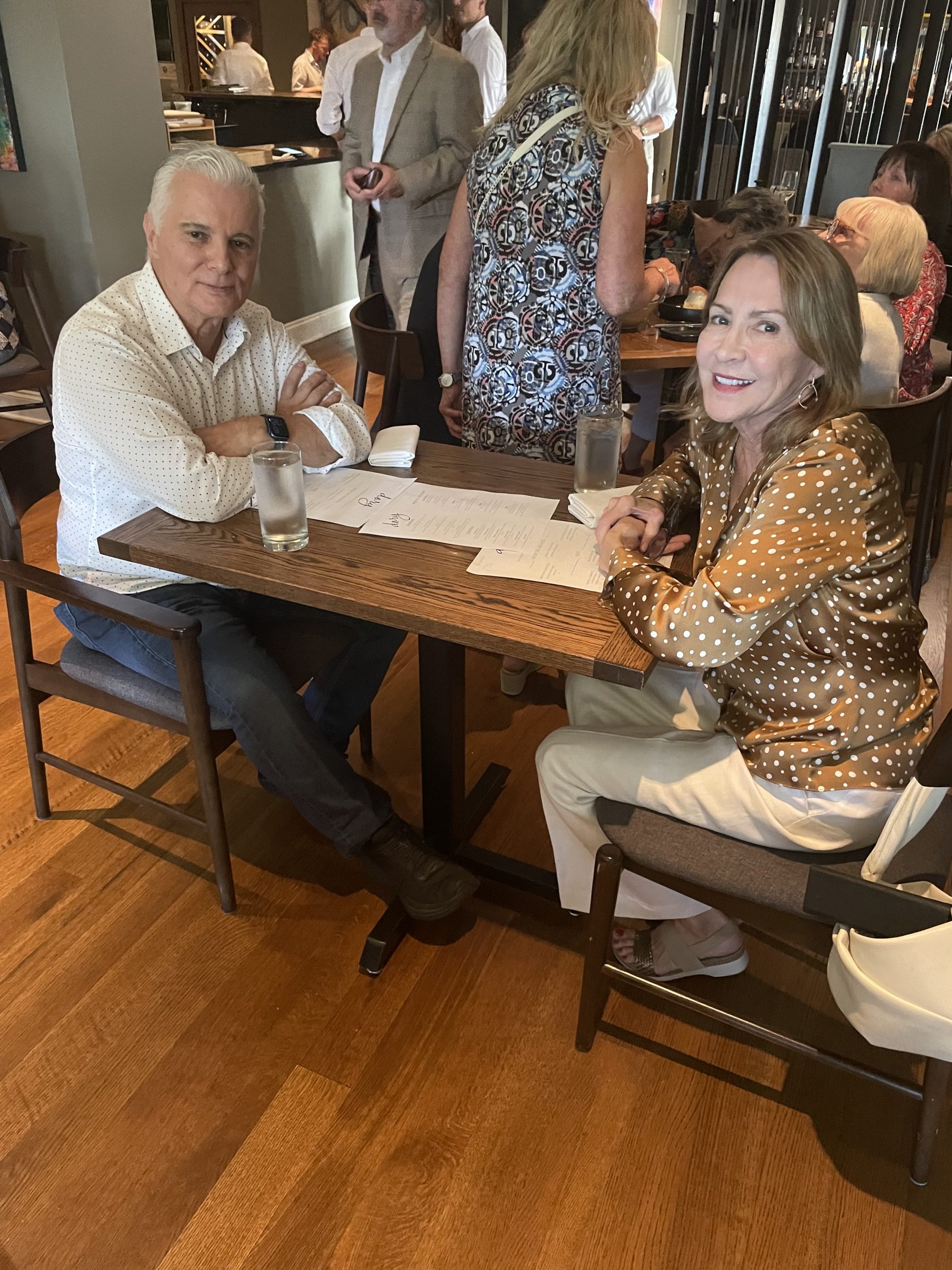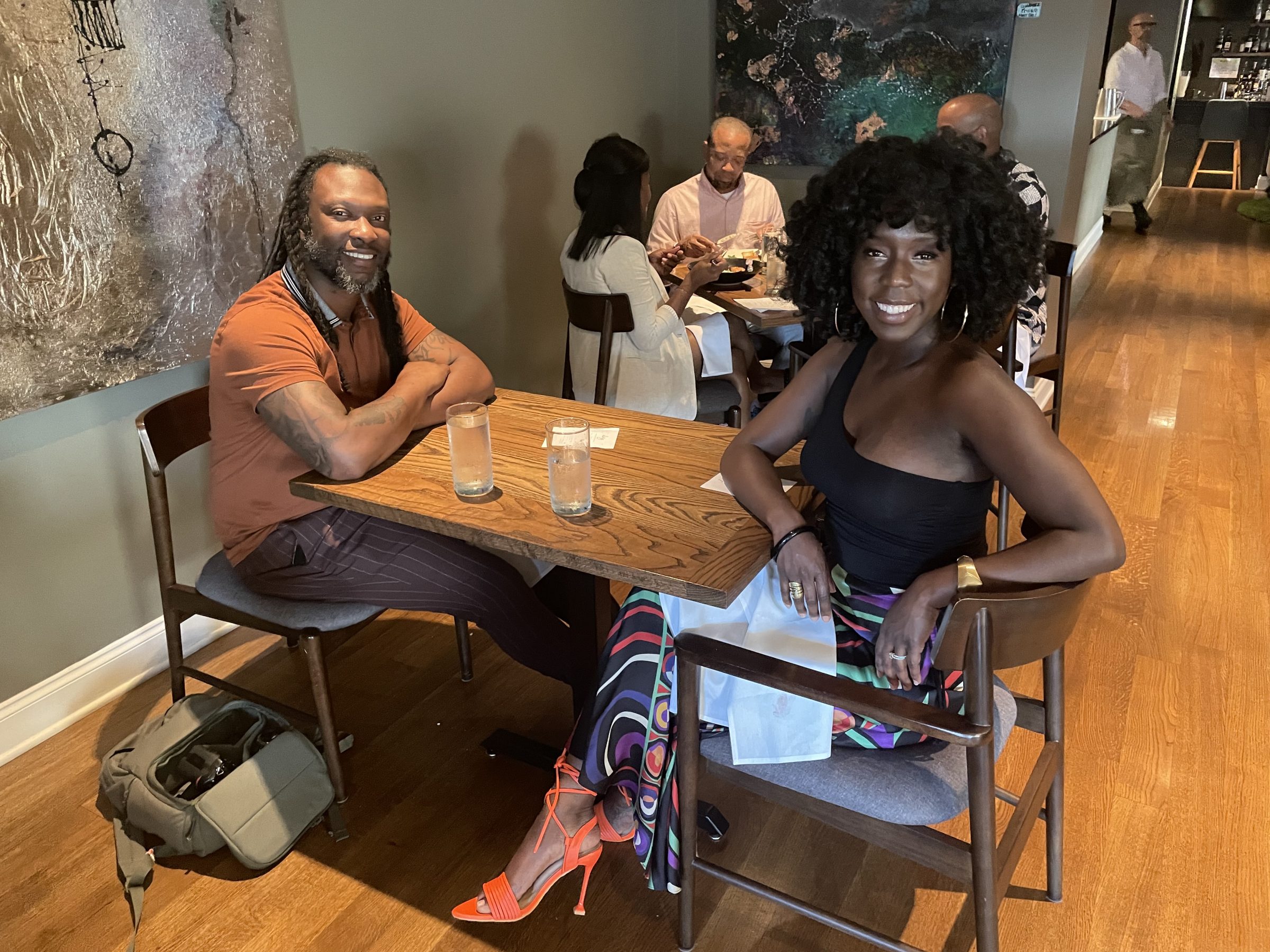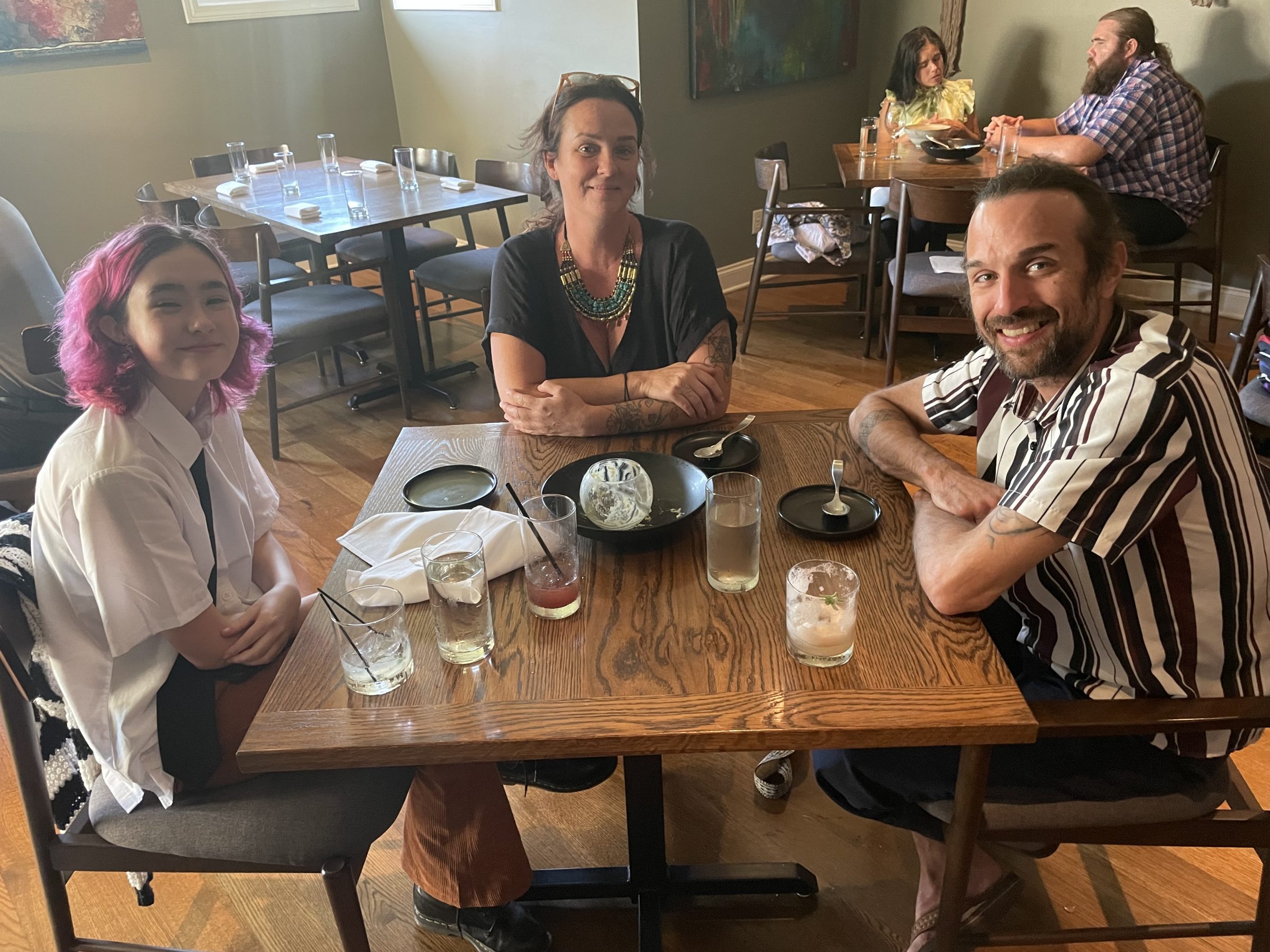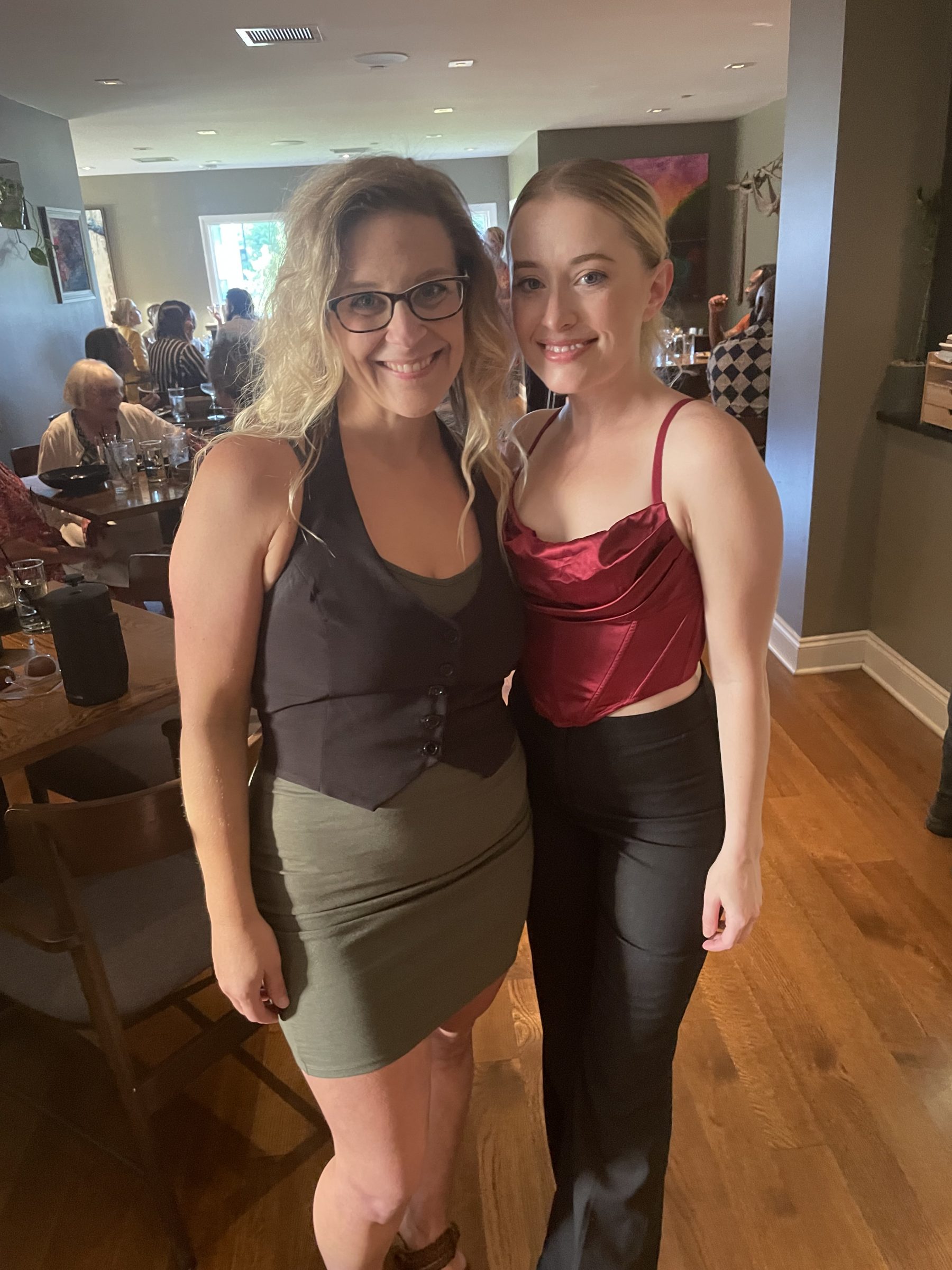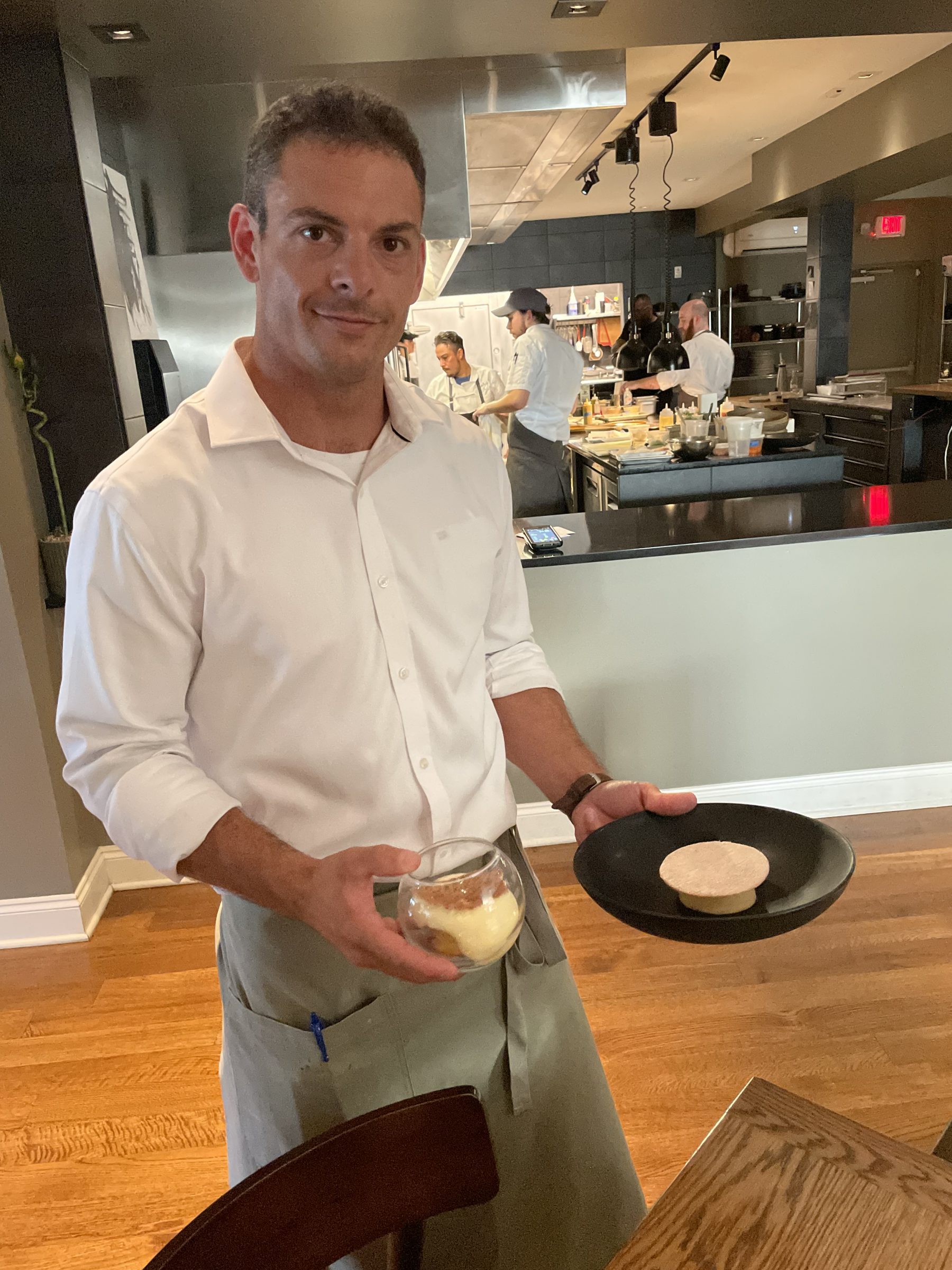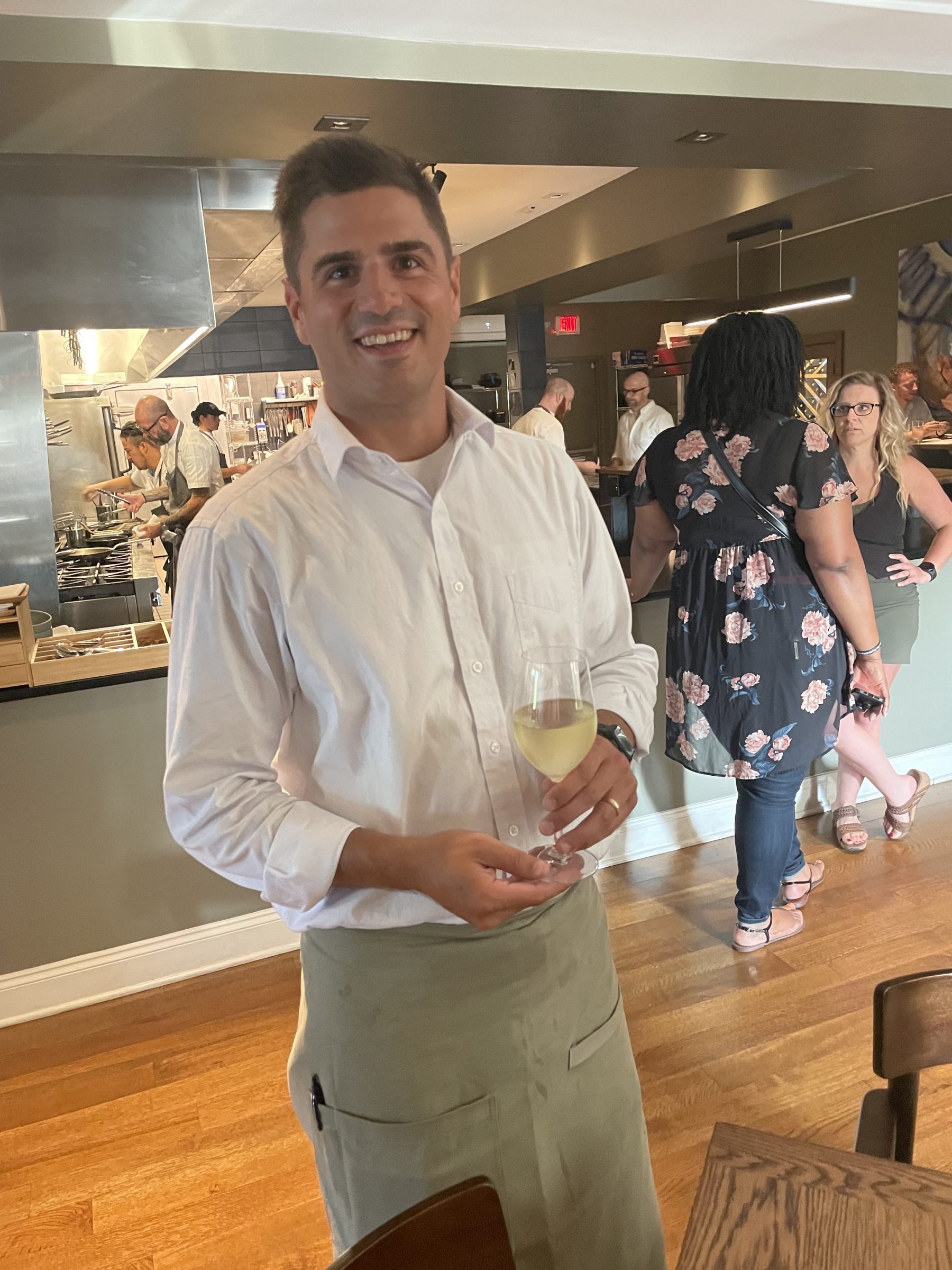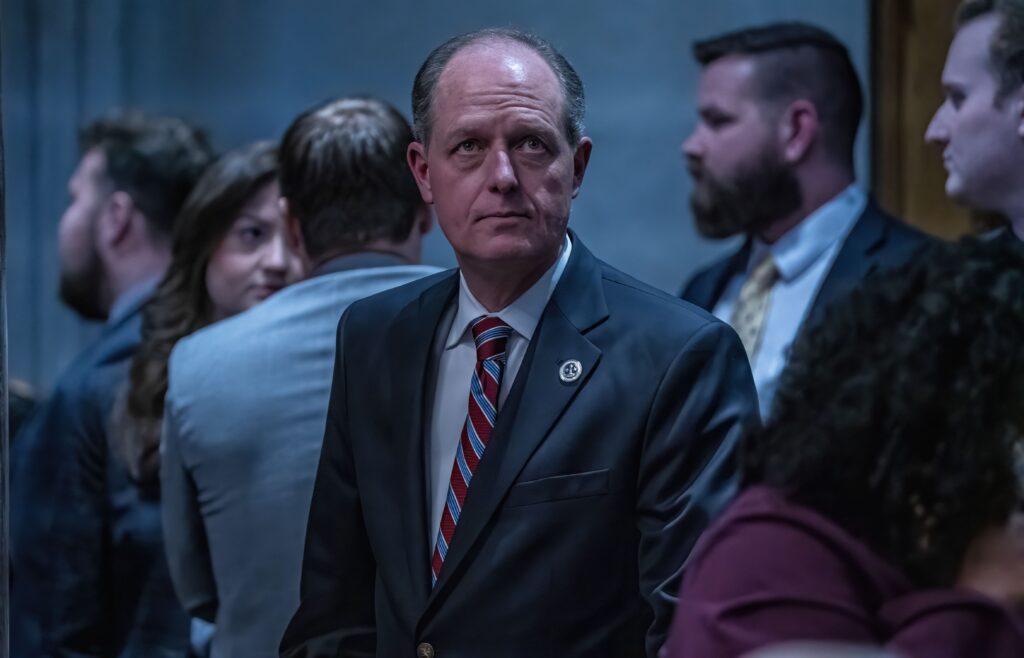It was dark by the time Michael Miller left the Williamson County Administrative Building on West Main Street in Franklin on Aug. 10, 2021.
“Will not comply!” shouted a throng of angry far-right protesters in the parking lot as Miller stepped into the warm, Middle Tennessee night. “Will not comply!”
Miller, masked and wearing a light-colored button-down shirt and shorts, was leaving a Williamson County Schools special school board meeting about Covid-19 safety protocols. At the time, new daily Covid-19 cases in the state were rising. And the highly transmissible Delta variant had many people — but not everyone — concerned. During the meeting, he had spoken in favor of a mask mandate and additional protocols.
Before the end, the school board voted on a short-term mask mandate for students, staff and visitors at elementary-grade levels in all buses and buildings: Seven voted for the mask mandate, three voted against it.
Within seconds of leaving, protesters started descending on Miller.
“Child abusers!” one man, buff and in a tight-fitting black t-shirt, yelled at Miller. “You are child abusers! There’s a place for you guys! There’s a bad place in hell, and everybody’s taking notes, Buddy!”
Law enforcement helped Miller get to his gray SUV. But Miller wasn’t in the clear. The guy in the black t-shirt met him there.
“We know who you are!” the man shouted as Miller closed his driver door. “We know who you are! No more masks!”
“Keep it calm!” another guy, bald, said to the man in the black t-shirt. The bald guy continued trying to cool off the man in the black t-shirt, claiming that the police officers present were on their side. Then, the two men went after Miller, already inside the SUV.
“We know who you are!” the two yelled, pointing at Miller.
“We know who you are!” the bald man said again, still pointing. “You can leave freely, but we will find you! And we know who you are!”
“You will never be allowed in public again!” the man in the black t-shirt threatened before law enforcement stepped in and started making a path for Miller to drive away.
Over the years, people with far-right ideologies have made their presence known in the United States. They’ve taken warped, twisted stances on things, like race, religion, the federal government. They’ve gotten steamrolled by conspiracy theories and spread them. Lives have been lost. But that hasn’t been all. Members of the far right in the U.S. have tried to reshape things closer to home: the communities they live in. That night in August, Williamson County was in the crosshairs. The attention wasn’t new. Just like it wasn’t for the state overall. None of it would dissipate.
The evolution of a county
Tennessee has three regions: West, Middle and East. Nashville — the boozy, country music playground that tourists have flocked to for years that doubles as the state’s capital — calls Middle Tennessee home. And just a little south of that is Williamson County. More or less in the middle of Williamson County is the city of Franklin.
Williamson County is suburban. It grew a lot between 2010 and 2020, according to U.S. Census Bureau data, going from 183,182 people to 247,726. Per 2019 data from the Census Bureau, Williamson County is whiter than both Tennessee as a whole and the U.S.: 88.2 percent of Williamson County is white, compared to 78.4 percent in Tennessee and 76.3 percent in the U.S. It’s also more educated than Tennessee and the country in terms of people aged 25 years and older who have at least a high-school degree, the Census Bureau reports from 2016 through 2020.
It was also more affluent than both the state and the U.S. during that same time period. The median household income in 2020 U.S. dollars for Williamson County was $111,196. Tennessee’s was $54,833. For the U.S., it was $64,994.
“Williamson County is a very family-centric community,” 38-year-old Elizabeth Madeira says. “If you ask most people why they moved to Williamson County, most of them would probably say for the public schools.”
Madeira and her husband moved to Franklin in 2008. They and their three kids called Franklin home until the summer of 2022, when they moved to Nashville.
Downtown Franklin is cute in an old, small-town kind of way. Little shops and restaurants line Main Street, the downtown’s primary road. Encircled by a roundabout in the heart of historic Downtown Franklin is the grassy Public Square.
There’s more to Franklin, though. Vestiges of the slavery era and the country’s Civil War can be found here and there. On Franklin’s Public Square, a statue honoring Confederate troops stands, as does a newer one, unveiled in October 2021 and dedicated to the U.S. Colored Troops. It honors the formerly enslaved people who fought for the Union.
Williamson County is a very family-centric community. If you ask most people why they moved to Williamson County, most of them would probably say for the public schools.
– Elizabeth Madeira
Tennessee is a red state. The Republican party has controlled the state’s legislature and governor’s office since 2010, according to the National Conference of State Legislatures.
In March of 2016, Donald Trump won the state’s GOP presidential primary. Come that year’s general election, the state went to Trump, and Trump went to the White House.
As the incumbent seeking re-election in 2020, Trump, once again, picked up Tennessee in the presidential election.
Despite its redness, Tennessee has evolved, Madeira, a Democrat, says. She has noticed the state’s Republican party has gone further to the right, has gotten more extreme.
In April 2009, the U.S. Department of Homeland Security’s Extremism and Radicalization Branch, Homeland Environment Threat Analysis Division — in coordination with the FBI — prepared an assessment of right-wing extremism in the country. While the assessment noted that Homeland Security didn’t have any specific information indicating violence was being planned by domestic right-wing terrorists, the assessment did flag something else: Right-wing extremists might be adding new recruits. How? Fear-mongering.
Far-right ideology in the U.S. has grown over time. Those who plan and potentially carry out physical violence represent one end of the ideological spectrum. The other end is non-violent; however, people on the non-violent end aren’t necessarily harmless.
There was this fear that Barack Obama was some kind of communist in disguise or working with the Muslim Brotherhood and was plotting the downfall of American society. And that was really animating to a lot of anti-government sentiment.
– Jared Holt, Institute for Strategic Dialogue
Jared Holt is a senior research manager at the international non-profit Institute for Strategic Dialogue. ISD focuses on human rights as well polarization, extremism and disinformation. At ISD, Holt specializes in working on U.S. hate and extremism. He says far-right movements have taken advantage, to at least some extent, of disorder. Two examples are a lack of trust in institutions and fear of what the future might hold.
After Barack Obama became president in 2008, Holt says the far-right militia movement had a little bit of a resurgence. Then, fueled by social media and the ability to sidestep traditional media gatekeepers, like journalists and their news outlets, the early stages of the white-nationalist alt-right started taking shape. Also, says Holt, anti-government sentiment brewed during Obama’s two presidential terms. A lot of what caused that festering, Holt thinks, was culture shock from having a Black man as president.
“There was this fear that Barack Obama was some kind of communist in disguise or working with the Muslim Brotherhood and was plotting the downfall of American society,” Holt explains. “And that was really animating to a lot of anti-government sentiment.”
That anti-government sentiment dissipated around 2015 with the arrival of Donald Trump’s presidential campaign, Holt notes. Not ones to typically get excited about a president, far-right extremists saw an opportunity. Sure enough, Trump embraced their rhetoric. So, white nationalists, militias and extreme conspiracy theorists all threw their weight behind Trump. Elizabeth Madeira (Photo: John Partipilo)
With Trump sitting in the Oval Office, Holt says, far-right ideology “claw[ed] forward” into the forefront. The far-right conspiracy QAnon entered the picture, as did extremist groups, like the Proud Boys. Militias and the “America First” white-nationalist movement did, too. Holt contends Trump moved the Republican party more toward the far-right. Holt adds, though, not every Conservative and Republican espouses far-right ideologies. That said, Holt does feel that far-right ideology has become mainstream in the GOP. Trump wasn’t alone in helping make this happen, Holt points out: one of Fox News’s now-former on-air personalities, in particular, had a role.
“Tucker Carlson is like a king-maker in the Conservative movement,” Holt namechecks Fox News’s now-former, and formerly much-watched, nighttime talk-show host. Carlson repeatedly spewed far-right garbage to his viewers.
In Elizabeth Madeira’s eyes, initially, at the community level, the Tennessee Republican party’s extremist progression was a slow, drip-by-drip thing. But then came Trump, his 2016 presidential campaign, the early years of his presidency. Madeira says they sped the progression up.
Tennessee elected Republican Bill Lee, who’s from Franklin, to be the state’s newest governor in 2018. Madeira says Lee took the baton from Trump and accelerated things even more, which made the state party’s evolution go even quicker.
Look for part two in our series A darker shade of red tomorrow.
Tennessee Lookout is part of States Newsroom, a network of news bureaus supported by grants and a coalition of donors as a 501c(3) public charity. Tennessee Lookout maintains editorial independence. Contact Editor Holly McCall for questions: info@tennesseelookout.com. Follow Tennessee Lookout on Facebook and Twitter.





